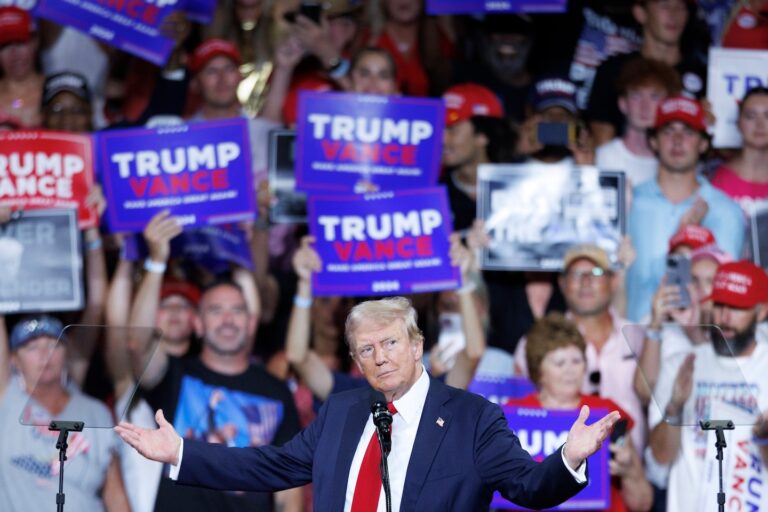The person, like others at the briefing, spoke on condition of anonymity under ground rules set by the intelligence community.
The officials also noted that the U.S. government has not detected any foreign hacking, interference or tampering with election machines or websites, but has seen efforts to “scan” for such networks.
A senior ODNI official noted that Russia remains a “prominent threat” to U.S. elections and that Moscow’s “primary concern” is “opponents who want to offer more support to Kiev” as Ukraine continues to resist Russia in its nearly two-and-a-half-year war. That was the case until President Biden dropped out of the race last week and endorsed Vice President Harris, the leading Democratic candidate.
The Kremlin primarily uses Russia-based commercial companies to support its influence operations by creating fake websites impersonating U.S. government and media organizations, the officials said, noting that two such companies have already been sanctioned for their activities.
The official could not say how effective these Russian and Iranian operations have been in shaping U.S. attitudes and behavior or stoking discord, in part because of the need to assess U.S. public opinion. Intelligence communities are tasked with monitoring and assessing the capabilities and actions of foreign powers, but they are not tasked with monitoring and assessing the U.S. political process or public opinion.
The official said China probably isn’t trying to influence the presidential election, but U.S. intelligence agencies are monitoring the possibility that pro-Beijing forces may try to undermine lower-ranking candidates, as they did in several 2022 midterm elections.
President Xi Jinping assured Biden at their November summit in San Francisco that Beijing would not interfere in the election. “We expect China has become more cautious and is concerned about being found out if it interferes in the election and does not want to risk further damaging bilateral relations,” the official said.
Iran relies on a vast network of online figures and propaganda factories to spread disinformation and has been particularly active in exacerbating tensions with Israel over the Gaza conflict, the officials said.
Some of Iran’s key influence operatives operate under the umbrella of the Revolutionary Guard, a paramilitary organization that houses intelligence and cyber forces and has direct links to the country’s supreme leader, the officials said.
With Biden’s recent decision to drop out of the race, it’s “very early” to gauge whether Iran would actively seek to back Trump’s eventual opponent, the official said. Iran tried to undermine Trump’s reelection chances in 2020 but did not appear to be actively backing a rival, intelligence agencies concluded in a post-election assessment.
“It is also important to emphasize that the majority of the activities of Iranian influencers that we observe remain focused on stoking chaos and division,” he said.
During a briefing on election threats earlier this month, ODNI officials said Tehran had sought to exploit continuing protests against the Gaza war. “We have observed individuals with ties to the Iranian government posing as activists online, attempting to encourage protests, and even providing financial support to protesters,” Director of National Intelligence Avril Haines said in a statement.
An ODNI official said Monday that intelligence agencies have “no further information” indicating Iran is “seek[ing]to engage or support protesters.”


